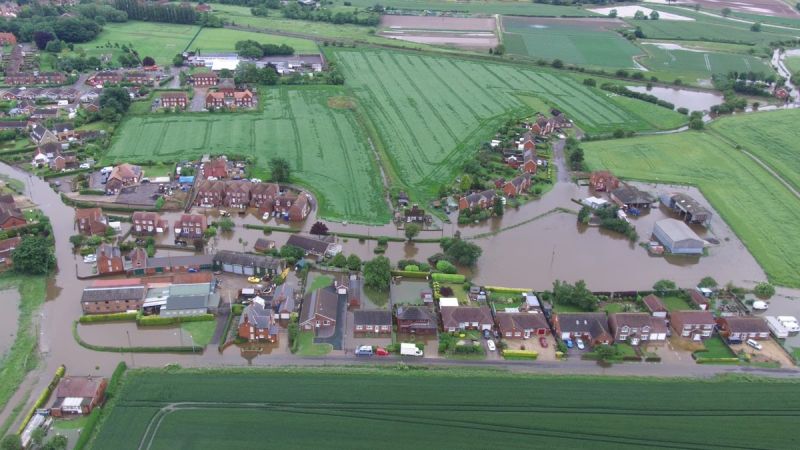
The severe floods experienced recently in Lincolnshire, which left valuable crops under water, has led to calls for long-term strategic plans to battle future extremities.
In June, heavy flooding hit the small town of Wainfleet leading to the evacuation of around 600 homes.
Around 1,100 hectares of farmland were affected, the equivalent to 1,300 football pitches.
One local farmer, Paul Willoughby, who grows oilseed rape and wheat, highlighted how he could lose half his crop following the flooding.
In response to this, the NFU has highlighted the need for the Environment Agency (EA) to work more closely with other organisations to ensure future incidents like this can be prevented.
It responded to the EA’s draft national Flood and Coastal Erosion Risk Management (FCERM) strategy to tackle flooding and coastal change.
It comes as the union recently visited the Netherlands where it saw first-hand how it is possible to be more ambitious and innovative when it comes to flood and coastal erosion risk management.
NFU flood management policy adviser, Mhari Barnes said: “It’s clear that here in the UK the issue of water in general, and particularly flood and coastal erosion, has not been given the priority it should have in the past.
“We have been arguing for more collaboration, early engagement and support in protecting rural communities and agricultural land which has been massively undervalued for too long.
“The EA strategy needs to be clear about the importance of these areas, not just to farmers, but to all those with an interest in the environment and our food security.”
She added: “The severe floods experienced in recent weeks around the Wainfleet breach in Lincolnshire, which left valuable crops under water, has demonstrated why necessary long-term strategic plans must be in place to tackle the nation’s flood resilience.”
